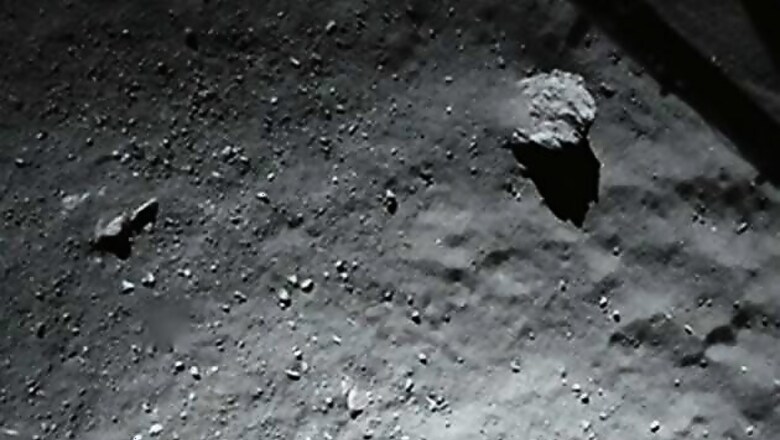
views
Paris: Europe's science probe Philae sent home a treasure trove of data from a comet heading towards the Sun before falling silent as its power ran out, mission control said on Saturday.
Crowning a historic feat, the robot lab streamed data from its experiments back to its mother ship Rosetta in the final hours before its battery ran down.
This included the outcome of an eagerly-waited chemistry test of a sample drilled from the comet's icy and dusty surface, scientists said.
"Rosetta's lander has completed its primary science mission," the European Space Agency (ESA) said.
Lacking power, its instruments and most systems went into standby mode after three days of non-stop work, sending back data that will keep scientists busy for years.
"The data collected by Philae and Rosetta is set to make this mission a game-changer in cometary science," said Matt Taylor, Rosetta project scientist.
Philae had landed in a dark shadow after a bouncy triple touchdown Wednesday. It did not get enough sunlight to recharge its batteries sufficiently to extend its mission beyond its initial 60-hour work programme.
Mission engineers do not rule out making contact with the lander in the coming months as Comet 67P/Churyumov-Gerasimenko moves closer to the Sun.
Conceived more than 20 years ago, the Rosetta mission aims at shedding light on the origins of the Solar System 4.6 billion years ago, and maybe even life on Earth.
A theory gaining ground in astrophysics is that the fledgling Earth was pounded by these bodies of cosmic ice and carbon-rich dust, seeding our planet with the basics to start life.
Rosetta and its payload travelled more than six billion kilometres, racing around the inner Solar System before they caught up with the comet in August 2013.
On Wednesday, Philae bade farewell to its mother ship and descended to a comet travelling at 18 kilometres per second, 510 million kilometres from Earth.
The touchdown did not go entirely as planned - hardly a surprise in an operation some gloomily predicted had only a one-in-two chance of success.
Philae landed smack in the middle of its targeted site, but a pair of anchoring harpoons failed to deploy. It rebounded, touched down again, bounced up once more and then landed for the third time at a place believed to be about a kilometre from the landing site.

















Comments
0 comment